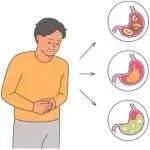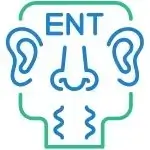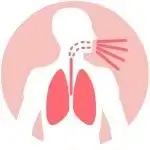Osteopathy Treatment for Shoulder Pain
Osteopathy Practitioners for Shoulder Pain Treatment
Osteopathy is a form of manual therapy that focuses on the musculoskeletal system and the body’s natural ability to heal itself. Osteopathy Clinic uses a variety of techniques to improve the function of the muscles, joints, and connective tissues in the body.
At Brampton Osteopathy Clinic, our goal is to provide quality care and relief from shoulder pain. Our team of experienced osteopaths has extensive experience in treating all types of shoulder issues, from postural imbalances to rotator cuff tendinitis and more.
We understand that shoulder pain can have a significant impact on your daily life, so we strive to provide you with the best possible osteopathic treatment options.
Brampton's Best Manual Osteopath Practitioners

Osteopathic treatment for shoulder pain relief may include a variety of techniques, such as:
- Soft tissue therapy: This involves using gentle pressure and stretching to relax tense muscles and improve circulation.
- Joint manipulation: This involves using gentle force to restore proper movement and alignment to the joints.
- Myofascial release: This involves applying gentle pressure to the fascia (connective tissue) to improve mobility and reduce pain.
- Craniosacral therapy: This involves gentle manipulation of the bones in the head, neck, and spine to improve the functioning of the central nervous system.
Osteopathic treatment for shoulder pain may also include lifestyle and posture advice to help prevent future problems and improve overall health and well-being.
Osteopathy vs Physiotherapy for Shoulder Pain
Osteopathy offers a more holistic approach to treatment, focusing on the body as a whole rather than just the affected area. Unlike physiotherapy, which typically focuses on specific exercises and manual therapy, osteopathy takes into account the entire musculoskeletal system, pain and inflammation, exploring how different parts of the body are interconnected and working together. Osteopaths can also use massage and manipulation techniques to improve mobility and reduce pain, allowing for more targeted relief from shoulder pain.
Furthermore, osteopathic treatments tend to be more gentle than those offered by physio, making it easier for people with sensitive conditions to receive effective treatment without feeling overwhelmed or uncomfortable. Ultimately, osteopathy provides a far more comprehensive approach towards treating shoulder pain than physiotherapist does.

Causes Shoulder Pain
There are many potential causes of shoulder pain and a wide range of shoulder problems that can cause discomfort and difficulty with certain movements. Some common shoulder problems include:
- Rotator cuff injuries: These shoulder injuries can involve tears or inflammation of the muscles and tendons that surround the shoulder joint. They can cause pain and difficulty lifting the arm.
- Frozen shoulder (adhesive capsulitis): This condition causes stiffness and pain around the shoulder, often as a result of inactivity or immobility following an injury or surgery.
- Osteoarthritis: This is a degenerative joint disease that can cause pain, stiffness, and loss of range of motion in the shoulder.
- Tendinitis: This is inflammation of a tendon in the shoulder, often caused by overuse or repetitive strain. It can cause pain and difficulty moving the arm.
- Bursitis: This is inflammation of the small fluid-filled sacs (bursae) that cushion the shoulder joint. It can cause pain and tenderness in the shoulder.
- Dislocated shoulder: This occurs when the upper arm bone (humerus) becomes dislocated from the shoulder blade (scapula). It can cause severe pain and difficulty moving the arm.
If you are experiencing shoulder pain, it is important to see Osteopathy Practitioner for a proper diagnosis and treatment plan. Treatment may include rest, physical therapy, medications, or surgery, depending on the cause and severity of the problem.
Rotator cuff tear injuries
- Pain in the shoulder, especially when lifting the arm or reaching overhead
- Weakness in the shoulder
- Stiffness and difficulty moving the arm
- A clicking or grinding sensation when moving the arm
Osteopathic treatment for rotator cuff injuries is typically focused on reducing pain and improving mobility in the shoulder. It may be used in conjunction with other treatments, such as rest, ice, and medications, to help speed recovery and promote healing.
Frozen Shoulder (Adhesive Capsulitis)
- Pain in the shoulder, especially when moving the arm
- Stiffness and difficulty moving the arm
- A limited range of motion in the shoulder
Osteoarthritis
- Pain in the shoulder, especially when moving the arm
- Stiffness and difficulty moving the arm
- A limited range of motion in the shoulder
- A grinding sensation when moving the arm

Tendinitis
- Pain and tenderness in the shoulder, especially when moving the arm
- Stiffness and difficulty moving the arm
- Swelling in the shoulder
- A sensation of warmth in the affected area
Bursitis
Bursitis is inflammation of the small fluid-filled sacs (bursae) that cushion the shoulder joint. It can cause pain and discomfort in the shoulder, as well as difficulty moving the arm. Bursitis is often caused by overuse or repetitive strain, but it can also be caused by an injury or an underlying medical condition, such as arthritis.
Symptoms of Bursitis in the shoulder may include:
- Pain and tenderness in the shoulder, especially when moving the arm
- Stiffness and difficulty moving the arm
- Swelling in the shoulder
Dislocated Shoulder Pain
- Severe pain in the shoulder
- Difficulty moving the arm
- Swelling and bruising in the shoulder
- A visible deformity in the shoulder
Impingement
- Pain in the shoulder, especially when lifting the arm or reaching overhead
- Weakness in the shoulder
- Stiffness and difficulty moving the arm
- A clicking or grinding sensation when moving the arm
Arthritis
- Osteoarthritis: This is a degenerative joint disease that occurs when the cartilage that cushions the ends of the bones in the joint wears down, leading to bone-on-bone contact. It can cause pain, stiffness, and loss of range of motion in the shoulder.
- Rheumatoid arthritis: This is an autoimmune disorder that causes inflammation of the joints, including the shoulder. It can cause pain, stiffness, and swelling in the shoulder.
- Pain in the shoulder, especially when moving the arm
- Stiffness and difficulty moving the arm
- A limited range of motion in the shoulder
- Swelling and tenderness in the shoulder

Chronic Shoulder Pain
Chronic shoulder pain can be a debilitating condition, making it difficult to perform everyday tasks. Fortunately, there are several treatments available that may help reduce pain and improve mobility. Osteopathy treatment is one such option that has been shown to be effective in treating chronic shoulder pain. This type of treatment focuses on the manipulation of bones, joints, muscles, ligaments and connective tissue to restore balance in the body and provide relief from pain. By addressing underlying causes of shoulder pain as well as providing symptomatic relief, osteopathy treatment can help patients manage their symptoms over time and improve overall wellbeing. In this article, we will discuss the benefits of osteopathy treatment for chronic shoulder pain and how it works.

Osteopath Services at "Brampton Naturopath Osteopath Clinic"

Osteopath Pain Management
Osteopath pain management is a field of medicine that uses manual therapies and other treatments to help people manage pain. Osteopathic pain management is often used to treat chronic pain, but can also be used to treat acute pain.

Osteopath Systemic Dysfunction and Problems
Osteopathic systemic dysfunction (OSD) is a term used to describe a state of body function that is characterized by a disruption in the normal balance of the musculoskeletal, cardiovascular, respiratory, and digestive systems.

Pregnancy
Osteopathy for Pregnancy is a form of treatment that focuses on the body’s structure and how it functions. Osteopaths believe that restrictions in movement or pain in one area of the body can cause problems in other parts of the body.

Ear, Nose and Throat Problems
Osteopathy is a form of manual medicine that uses specific techniques to diagnose and treat problems with the musculoskeletal system. Osteopaths believe that many health problems can be traced back to problems with the bones, muscles, and joints.

Pediatric Osteopathy (Babies and Children)
Pediatric Osteopathy is a form of holistic medicine that uses manual manipulation of the body to improve circulation and overall health. Osteopaths believe that this type of treatment can help with a wide range of issues, from ear infections to colic.

Respiratory Illness
Osteopathy is a form of manual medicine that uses the hands to diagnose and treat health problems. Osteopathy can be used to treat a wide variety of respiratory illnesses, including asthma, bronchitis, and pneumonia.
About City Of Brampton
Brampton is a hidden gem for artists and creatives, offering a growing arts and culture scene that inspires talent across all disciplines. From visual arts to music and theater, the city fosters a thriving creative community.
The Living Arts Centre is a hub for performances, exhibitions, and workshops, while Celebration Square hosts outdoor concerts and cultural festivals year-round. Independent galleries, like the Art Gallery of Brampton, showcase local and international talent.


Creative spaces, music studios, and theaters provide platforms for artists, while initiatives like Brampton Arts Council support emerging talent. Public art installations and mural projects contribute to the city’s cultural vibrancy.
With a mix of urban energy and serene landscapes, Brampton is an ideal place for artists to find inspiration. Whether performing at a local venue, attending an art walk, or collaborating on creative projects, the city offers endless opportunities to thrive.
Major Street Intersections
- Hurontario St
- Dundas St
- Eglinton Ave
- Burnhamthorpe Rd
- Lakeshore Rd
- Britannia Rd
- Matheson Blvd
- Mavis Rd
- Dixie Rd
- Winston Churchill Blvd
- Queensway
- Cawthra Rd
- Erin Mills Pkwy
- Derry Rd
Neighbourhood
- City Centre
- Fairview
- Cooksville
- Meadowvale
- Lisgar
- Streetsville
- East Credit
- Hurontario
- Erin Mills
- Churchill Meadows
- Sawmill Valley
- Credit Valley
- Dixie
- Applewood
- Rockwood Village
- Rathwood
- Brampton Valleys
- Port Credit
- Lorne Park
- Clarkson
- Sheridan
- Lakeview
- Mineola
Postal Codes
- L4Z,
- L5B,
- L5C
- L5L
- L5M
- L5G
- L5H
- L5J
- L5K
- L5E
- L5N
- L5M
- L5V
- L4Z
- L5R
- L4W
- L4X
- L4Y
- L4Z
- L5A
If you liked this content and found it to be informative, please rate it.

